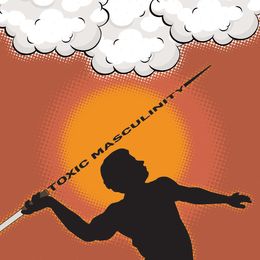A video of Paralympic gold medallist Navdeep Singh abusing after throwing his javelin in Paris went viral. It was mostly pretty garbled because he was fist-pumping and stomping around in circles while doing it, but the familiar syllables (especially if you are a Delhiite) of ma-ki-ch*** (mother’s vagina) rang out as clear as bell—kind of an awkward thing to have to explain to your child whom you have been making watch the Paralympics to inspire him/her with the wondrous never-say-die attitude of para-athletes and the power of the human spirit to triumph against all odds.
Of course, aggression, if correctly harnessed, is a great tool in the sporting arena and Navdeep was facing a tough contest at the time from Sadegh Beit Sayah of Iran, who actually scored further than Navdeep, but got disqualified for waving around a political/religious flag after his record-breaking throw. Sportsfolk of all sorts—tennis players, cricketers, footballers—often hype themselves up by trash-talking during such intense moments. John McEnroe and Virat Kohli are classic examples.
Still, ma-ki-ch*** was definitely a little excessive. It could even be argued that it merited a red card, of the sort that got Sadegh disqualified, except that the Parisians probably couldn’t grasp what was being said. In an interview he gave later, Navdeep justified his language by saying (with a sheepish, boyish smile) that he’d picked up such language while living and training in Delhi. Which, bizarrely enough, even sounds understandable, as our capital now seems to revel in its rape-ville tag and the regularity with which it features in songs that flex on its toxic masculinity with refrains like ‘Dilli se hoon behen c*** (I’m from Delhi, sister f*****.)
Of course, like all people with challenges, the four-feet-six-inches-tall Navdeep wishes first and foremost to establish himself as a regular person with all the regular flaws and frustrations, not some mushy, goodie-goodie object of pity. His use of foul language has gone a long way towards achieving that goal. Even Prime Minister Narendra Modi has come forward to reprimand him (but with a fatherly twinkle in his eye.) And Gen Z now think he’s a total badass. Win win. Far be it for me to take a high moral tone about foul language.
Being a Delhiite born and bred, I am well aware of the cathartic thrill of mouthing taboo words, and the exquisite release from frustration and pressure it provides. But I can’t deny its inherent misogyny. (The obsession with mothers and sisters and female body parts is deeply problematic, to say the least.) Also, like all powerful weapons, the source of its power lies in how sparingly it is used. Navdeep’s outburst had power because he mouthed the aggression of a largely voiceless group of underdogs. But if he uses it too often, or in low-stakes situations, it will start to show decreasing returns to scale and become gimmicky—kind of like in commercial cinema or OTT shows, where heroines and grandmothers who drink and swear have gone from novelty to norm to numbingly cliche. Language is a gift granted in such lavishness only to human beings upon this planet. The more words we use, the more expressive we become, the richer our interactions grow, the more our civilisation flourishes.
So the choice is ours, really. We could thunder ‘Know your place, weakling’ or ‘Grovel before the champ, loser’ or ‘Remember this arm, this is the arm of a champion’ or even ‘Never mess with an Indian who has drunk his mother’s milk’. Or settle for something as vanilla as ma-ki-ch***
editor@theweek.in


